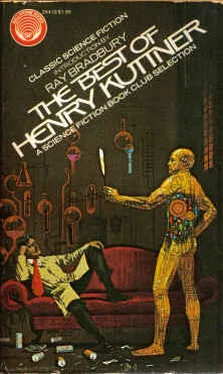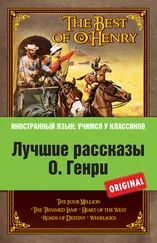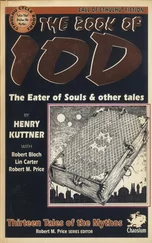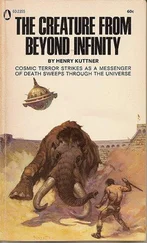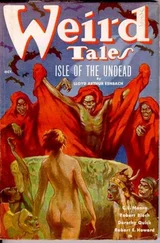Unthahorsten left the glossatch and dumped the assortment into the Box, slamming the cover shut before the warning signal flashed. The Box went away. The manner of its departure hurt Unthahorsten’s eyes.
He waited.
And he waited.
Eventually he gave up and built another time machine, with identical results. Snowen hadn’t been annoyed by the loss of his old toys, nor had Snowen’s mother, so Unthahorsten cleaned out the bin and dumped the remainder of his son’s childhood relics in the second time machine’s Box.
According to his calculations, this one should have appeared on Earth in the latter part of the nineteenth century, A.D. If that actually occurred, the device remained there.
Disgusted, Unthahorsten decided to make no more time machines. But the mischief had been done.
There were two of them, and the first — Scott Paradine found it while he was playing hooky from the Glendale Grammar School. There was a geography test that day, and Scott saw no sense in memorizing place names — which, in the nineteen-forties, was a fairly sensible theory. Besides, it was the sort of warm spring day, with a touch of coolness in the breeze, which invited a boy to lie down in a field and stare at the occasional clouds till he fell asleep. Nuts to geography! Scott dozed.
About noon he got hungry, so his stocky legs carried him to a nearby store. There he invested his small hoard with penurious care and a sublime disregard for his gastric juices. He went down by the creek to feed.
Having finished his supply of cheese, chocolate and c okies, and having drained the soda-pop bottle to its dregs, Scott caught tadpoles and studied them with a certain amount of scientific curiosity. He did not persevere. Something tumbled down the bank and thudded into the muddy ground near the water, so Scott, with a wary glance around, hurried to investigate.
It was a box. It was, in fact, the Box. The gadgetry hitched to it meant little to Scott, though he wondered why it was so fused and burned. He pondered. With his jack-knife he pried and probed, his tongue sticking out from a corner of his mouth — Hm-m-m. Nobody was around. Where had the box come from? Somebody must have left it here, and sliding soil had dislodged it from its precarious perch.
“That’s a helix,” Scott decided, quite erroneously. It was helical, but it wasn’t a helix, because of the dimensional warp involved. Had the thing been a model airplane, no matter how complicated, it would have held few mysteries to Scott. As it was, a problem was posed. Something told Scott that the device was a lot more complicated than the spring motor he had deftly dismantled last Friday.
But no boy has ever left a box unopened, unless forcibly dragged away. Scott probed deeper. The angles on this thing were funny. Short circuit, probably. That was why — uh! The knife slipped. Scott sucked his thumb and gave vent to experienced blasphemy.
Maybe it was a music box.
Scott shouldn’t have felt depressed. The gadgetry would have given Einstein a headache and driven Steinmetz raving mad. The trouble was, of course, that the box had not yet completely entered the space-time continuum where Scott existed, and therefore it could not be opened — at any rate, not till Scott used a convenient rock to hammer the helical non-helix into a more convenient position.
He hammered it, in fact, from its contact point with the fourth dimension, releasing the space-time torsion it had been maintaining. There was a brittle snap. The box jarred slightly, and lay motionless, no longer only partially in existence. Scott opened it easily now.
The soft, woven helmet was the first thing that caught his eye, but he discarded that without much interest. It was just a cap. Next, he lifted a square, transparent crystal block, small enough to cup in his palm — much too small to contain the maze of apparatus within it. In a moment Scott had solved that problem. The crystal was a sort of magnifying glass, vastly enlarging the things inside the block.
Strange things they were, too. Miniature people, for example.
They moved. Like clockwork automatons, though much more smoothly. It was rather like watching a play. Scott was interested in their costumes, but fascinated by their actions. The tiny people were deftly building a house. Scott wished it would catch fire, so he could see the people put it out.
Flames licked up from the half-completed structure. The automatons, with a great deal of odd apparatus, extinguished the blaze.
It didn’t take Scott long to catch on. But he was a little worried. The manikins would obey his thoughts. By the time he discovered that, he was frightened and threw the cube from him.
Halfway up the bank, he reconsidered and returned. The crystal lay partly in the water, shining in the sun. It was a toy; Scott sensed that, with the unerring instinct of a child. But he didn’t pick it up immediately. Instead, he returned to the box and investigated its remaining contents.
He found some really remarkable gadgets. The afternoon passed all too quickly. Scott finally put the toys back in the box and lugged it home, grunting and puffing. He was quite red-faced by the time he arrived at the kitchen door.
His find he hid at the back of a closet in his room upstairs. The crystal cube he slipped into his pocket, which already bulged with string, a coil of wire, two pennies, a wad of tinfoil, a grimy defense stamp and a chunk of feldspar. Emma, Scott’s two-year-old sister, waddled unsteadily in from the hail and said hello.
“Hello, Slug,” Scott nodded, from his altitude of seven years and some months. He patronized Emma shockingly, but she didn’t know the difference. Small, plump and wide-eyed, she flopped down on the carpet and stared dolefully at her shoes.
“Tie ’em, Scotty, please?”
“Sap,” Scott told her kindly, but knotted the laces. “Dinner ready yet?”
Emma nodded.
“Let’s see your hands.” For a wonder they were reasonably clean, though probably not aseptic. Scott regarded his own paws thoughtfully and, grimacing, went to the bathroom, where he made a sketchy toilet. The tadpoles had left traces.
Dennis Paradine and his wife Jane were having a cocktail before dinner, downstairs in the living room. He was a youngish, middle-aged man with soft gray hair and a thin, prim-mouthed face; he taught philosophy at the University. Jane was small, neat, dark and very pretty. She sipped her Martini and said: “New shoes. Like ’em?”
“Here’s to crime,” Paradine muttered absently. “Huh? Shoes? Not now. Wait till I’ve finished this. I had a bad day.”
“Exams?”
“Yeah. Flaming youth aspiring towards manhood. I hope they die. In considerable agony. Insh’
Allah!”
“I want the olive,” Jane requested.
“I know,” Paradine said despondently. “It’s been years since I’ve tasted one myself. In a Martini, I mean. Even if I put six of ’em in your glass, you’re still not satisfied.”
“I want yours. Blood brotherhood. Symbolism. That’s why.”
Paradine regarded his wife balefully and crossed his long legs. “You sound like one of my students.”
“Like that hussy Betty Dawson, perhaps?” Jane unsheathed her nails. “Does she still leer at you in that offensive way?”
“She does. The child is a neat psychological problem. Luckily she isn’t mine. If she were—” Paradine nodded significantly. “Sex consciousness and too many movies. I suppose she still thinks she can get a passing grade by showing me her knees. Which are, by the way, rather bony.”
Jane adjusted her skirt with an air of complacent pride. Paradine uncoiled himself and poured fresh Martinis. “Candidly, I don’t see the point of teaching those apes philosophy. They’re all at the wrong age. Their habit patterns, their methods of thinking, are already laid down. They’re horribly conservative, not that they’d admit it. The only people who can understand philosophy are mature adults or kids like Emma and Scotty.”
Читать дальше
